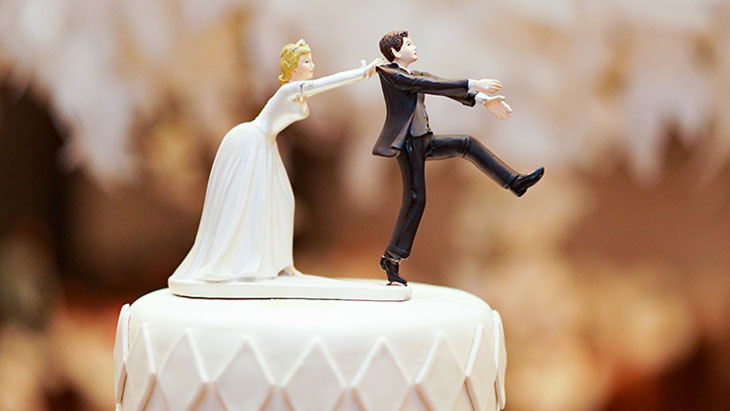 Iran’s Attack on Israel
Iran’s Attack on Israel


4 min read
Could you be getting in your own way of getting married and not even know it?
Someone goes on a date and says “S/he’s great, but….” (insert some kind of flaw or difference here).
Should it be a deal-breaker? Sometimes yes, but sometimes no.
Their complaint is what the person is aware of on the conscious level. But the conscious brain is only a small part of our brain. So much of what’s going on is unconscious, which means we are likely unaware as to what is motivating our choices.
As a therapist, when I’m working with a single person, I am looking for their ambivalence. People are not as uniform as we think. People come in parts, and sometimes those parts are in conflict with one another. I start with an assumption that there’s a part of that person that wants to get married and a part of them that doesn’t. I know this because even people who do get married have this.
I want the single person to speak from the part of them that doesn’t want to get married. Even if it feels like it’s not the dominant part, it needs to be expressed because it still has some hold on them. Then I look to explore with them, where did this feeling come from? Is it accurate or exaggerated? Is there anything that can be done with it?
Psychology calls this resistance, subconsciously avoiding a perceived threat.
Classic examples of resistance in Jewish singles are:
Someone who experienced their parent as burdened or unhappy, or a parent being treated unfairly or with disrespect, may associate marriage and parenting with those experiences and therefor want to avoid it.
Someone who has trouble experiencing joy in life (a tendency towards depression) may avoid things like marriage or family bec they may seem to only make life harder.
Someone who was always very tuned in to the feelings of others (known as an empath), and has guilt about doing what they want, may avoid marriage because craves freedom to live their own life instead of living for others.
Resistance also often serves to preserve a fantasy, a wish, rather than confront an uncomfortable reality. These fantasies include:
A person with these beliefs will always look outside of themselves for the reasons why they’re single, instead of within.
If these feelings stay in the subconscious for the person, in order to protect them from threat, they get stuck in the loop of “I’m trying, but… “
However, your real power is within. If someone with these feelings gets the help of a therapist to make the subconscious conscious, then they can examine these beliefs to see if anything can be done about them:
How can these fears inform what they look for in a partner?
Are there boundaries they can draw to respect their needs?
Are they capable of more than they realize?
What makes them not believe in their ability to meet challenges?
I also encourage singles to daily work on their trust in a Higher Power, internalizing that you are not alone. Feeling a connection with God who is lovingly guiding you goes a long way in alleviating the single person’s fears of making a mistake or getting stuck in a bad situation.
Identifying, inspecting and responding to resistance frees the single person to be more present and optimistic in their dating, have less to hide behind, and produce better results.
